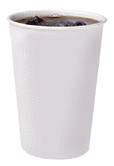
MONDAY, Feb. 20 (HealthDay News) — The common food and beverage sweetener fructose often gets a bad rap when it comes to causing weight gain, but a new study suggests that it may not be any worse for putting on pounds than other sugars.
The new study suggests that it’s the sheer number of daily calories that drives weight gain, not their source.
Fructose is found naturally in fruits, while high-fructose corn syrup, which contains about half fructose and half glucose, is ubiquitous in sodas, sweets and other processed foods and beverages.
However, “fructose does not seem to cause weight gain when it is substituted for other carbohydrates [which includes sugars] in diets providing similar calories,” the study authors concluded.
The findings are published in the Feb. 21 issue of Annals of Internal Medicine.
In the new study, Canadian researchers led by Dr. John Sievenpiper of McMaster University in Hamilton, Ontario, reviewed 31 studies where participants ate a similar number of calories but one group ate pure fructose and the other ate no fructose.
They also analyzed data from another 10 other studies where one group made no changes to their diet and the other group added excess calories from fructose to their daily intake.
The bottom line? Pure fructose had no effect on weight compared to diets that provided the same calories using other sugars, the team found.
The new study was funded by the Canadian government’s Institutes of Health Research. Some of the researchers did report financial ties to the Coca-Cola company, which uses high-fructose corn syrup in some of its products.
One expert nutritionist wasn’t surprised by the finding.
“The issue of weight is complex, it is not just ‘avoid this, eat that’ as some would like it to be,” said Connie Diekman, director of university nutrition at Washington University in St Louis. “This study provides good support to the fact that calories do count, while the source may not be as significant as the calories.”
Still, there’s no one-size-fits-all explanation for weight gain, either, Diekman said. “There are individual differences,” she said. “We have yet to completely identify or understand these variations, so until more research in humans clarifies what foods affect weight [and] in what way, we need to be aware of the calories we consume and those that we burn.”
Another expert agreed that fructose should not be singled out for blame when it comes to weight gain.
“This study lends some further support to the view that weight gain is not caused by any one particular component of the diet, and that fructose found in fruits, vegetables and added sugars is safe at normal dietary levels,” said cardiologist Dr. James Rippe, director of the Rippe Lifestyle Institute in Celebration, Fla, and a sweetener metabolism expert. Rippe is also a consultant for the Corn Refiners Association, which represents makers of high-fructose corn syrup.
“Obesity,” Rippe said, “is the result of consuming too many calories from all sources, without compensating exercise.”
More information
There’s more on fructose and other carbohydrates at the American Diabetes Association.

